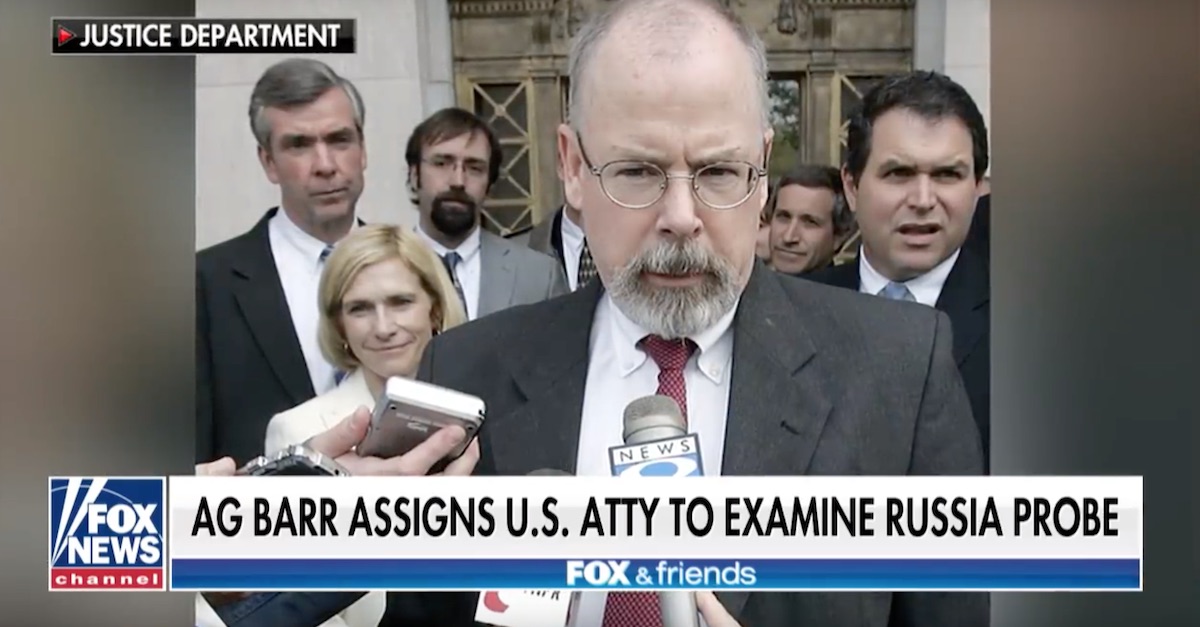
Attorney General William Barr appears to have fulfilled the promise he made to Sen. Lindsey Graham (R-S.C.) back in January, when the soon-to-be AG told Graham that, if confirmed, he would “look into what happened in 2016″ regarding the investigation into Donald Trump’s presidential campaign. Barr has assigned attorney John H. Durham to investigate the origins of the Russia investigation.
Durham is tasked with ensuring that the government’s “intelligence collections activities” of the Trump campaign were “lawful and appropriate,” a person familiar with the decision told the Washington Post. Durham’s appointment marks the third known inquiry focused on the opening of the counterintelligence investigation into the Trump 2016 presidential campaign.
President Trump nominated Durham, a Department of Justice attorney since 1982, to be the U.S. Attorney in Connecticut in 2017. Despite being a Trump appointee, Durham was recommended for the position by Connecticut’s Democratic senators Richard Blumenthal and Chris Murphy who characterized him as having earned “immense respect as a no-nonsense, fierce and fair prosecutor.” He was unanimously confirmed by the Senate on a voice vote in early 2018.
Durham was first appointed as a special prosecutor by President Bill Clinton‘s Attorney General Janet Reno in 1999 to investigate law enforcement corruption in Boston centered around the F.B.I.’s treatment of notorious mobster James “Whitey” Bulger.
In 2008, President George W. Bush‘s Attorney General Michael Mukasey tapped Durham to lead the investigation into the treatment of CIA detainees and the destruction of videotapes showing the torture of terrorism suspects. In 2009, President Barak Obama‘s Attorney General Eric H. Holder Jr. expanded the scope of Durham’s inquiry into investigating whether the CIA’s abuse of detainees violated any laws.
Despite the seemingly familiar circumstances of his appointment, Durham is not taking on the title of special prosecutor. According to the New York Times, Durham’s role is slightly different and essentially gives him “a special assignment but no special powers” and appears aimed at “sidestepping” the appointment of another special counsel like Robert S. Mueller III, which would allow for greater day-to-day independence.
[Image via Fox News screengrab/DOJ]